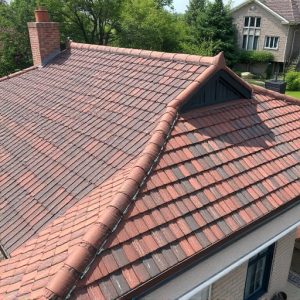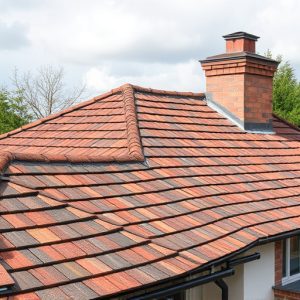Homeowner’s Guide to Maximizing Roofing Warranties for Satisfaction
Understanding roofing warranties is key for homeowners to ensure long-term satisfaction with their r…….

Understanding roofing warranties is key for homeowners to ensure long-term satisfaction with their roofing systems. There are two main types of warranties: manufacturer's and workmanship warranties, both offering different levels of protection against material defects or installation errors. Manufacturer's warranties cover the quality of materials but come with limitations, such as being valid only for the initial purchaser and not covering issues due to installation mistakes, normal wear and tear, or external factors. Workmanship warranties, on the other hand, protect the quality of the roof installation itself, with varying coverage durations. It's essential for homeowners to know the specifics of each warranty to make informed decisions about their roofing services. Regular maintenance, thorough documentation, and understanding warranty terms are crucial for effective warranty usage. This includes knowing what is covered, how to report issues, and the importance of following protocols. A well-maintained record and an understanding of warranty conditions can facilitate dispute resolution and ensure that any necessary repairs or replacements align with the warranty's scope and conditions, thus safeguarding the homeowner's investment in their roofing system. Roofing professionals can provide guidance through these complexities to help homeowners navigate warranties effectively and maintain a resilient, secure roof.
Homeowners face a myriad of decisions concerning their property’s maintenance, with roofing standing as a pivotal aspect. A robust warranty on roofing services is instrumental in safeguarding satisfaction and investment. This article demystifies the intricacies of roofing warranties, guiding homeowners through the various types available, the importance of proactive maintenance to maximize warranty benefits, and the steps to effectively resolve disputes with service providers. By understanding your rights under a roofing warranty, you can navigate the process with confidence, ensuring that your roof endures to protect your home for years to come.
- Understanding Roofing Warranties: A Comprehensive Guide for Homeowners
- Evaluating Different Types of Roofing Warranties: What's Covered and What's Not
- Maximizing Your Roofing Warranty: Best Practices for Maintenance and Claims
- Navigating Roofing Service Disputes: How to Leverage Your Warranty for Resolution
Understanding Roofing Warranties: A Comprehensive Guide for Homeowners

Understanding roofing warranties is a critical aspect for homeowners seeking long-term satisfaction with their roofing systems. A well-informed decision regarding warranty coverage can provide peace of mind and financial security against potential repairs or replacements due to material defects or workmanship issues. Roofing materials come with different types of warranties: manufacturer’s warranties, which cover defects in the materials themselves, and workmanship warranties, which address issues arising from improper installation. It’s imperative for homeowners to thoroughly review these warranties before any roofing project begins. The terms of a warranty can vary significantly between manufacturers, with some offering limited lifetime coverage and others providing only a few years of protection. Additionally, understanding the distinction between ‘prorated’ and ‘non-prorated’ warranties is crucial; non-prorated coverage offers full protection for the entire warranty period, while prorated coverage diminishes in value over time. Homeowners must also be aware that warranty coverage can be voided by improper maintenance or unauthorized modifications to the roofing system. Thus, it’s essential to maintain meticulous records of all roof maintenance and adhere strictly to manufacturer guidelines to ensure that warranty benefits are available when needed. By familiarizing oneself with the intricacies of roofing warranties, homeowners can navigate this complex aspect of home ownership with greater confidence and assurance.
Evaluating Different Types of Roofing Warranties: What's Covered and What's Not

When considering roofing services, evaluating the types of warranties available is crucial to ensuring satisfaction and long-term protection for your home. Manufacturer’s warranties typically cover defects in materials, ensuring that if a shingle or other component fails due to poor quality, it can be replaced without additional cost. However, these warranties often have limitations; they may only apply to the original purchaser, and their scope might not extend to issues related to installation errors, wear and tear, or damage from external factors like severe weather or fallout from nearby construction sites.
On the other hand, contractor’s workmanship warranties focus on the quality of the installation itself. These warranties can provide assurance that any errors in roofing application will be rectified by the contractor. The duration and terms of a workmanship warranty can vary widely among different roofing companies. Some may offer a one-year guarantee, while others might provide coverage for a decade or more. It’s essential to understand what is covered under both types of warranties, as they complement each other. For instance, a manufacturer’s warranty may cover the materials for fifty years, but if there’s an issue within the first five years and it’s determined to be due to improper installation, the contractor’s workmanship warranty will be the mechanism for addressing that concern. Roofing professionals can help clarify these warranties, ensuring homeowners have a clear understanding of their rights and the protections offered, which is key to making an informed decision about roofing services.
Maximizing Your Roofing Warranty: Best Practices for Maintenance and Claims

When it comes to maximizing your roofing warranty, adherence to best practices for maintenance and claims is paramount. Regular upkeep is a critical component in ensuring that your roof’s warranty remains valid. This involves scheduled inspections by professional roofers who can identify potential issues before they escalate. Document all maintenance activities, as detailed records can be instrumental when submitting a claim. In the event of damage or defects, prompt reporting and adherence to the manufacturer’s guidelines are essential. Delays in notifying the warranty provider could lead to coverage denials. Always refer to your warranty agreement for specific instructions on how to proceed with claims. Additionally, be aware that some warranties may cover only materials, while others might extend to labor as well. Understanding these nuances is key to leveraging your roofing warranty effectively. Moreover, maintaining clear communication with your roofing contractor and warranty provider can facilitate a smoother process when making a claim, ensuring that any necessary repairs or replacements are carried out efficiently and in line with the warranty terms.
Navigating Roofing Service Disputes: How to Leverage Your Warranty for Resolution

When disputes arise in roofing service projects, having a comprehensive warranty can be a pivotal tool for resolution. A well-structured warranty not only provides peace of mind but also serves as a guide for what is covered and the recourse available should issues like leaks or damage occur post-installation. Homeowners should meticulously review their warranty terms upon completion of roofing services to understand the scope of coverage, including material defects and workmanship guarantees. In the event of a dispute, this document becomes critical, as it outlines the steps to take for claiming warranty benefits, such as scheduling inspections or initiating repairs. It’s advisable to maintain clear records of all communications and transactions related to roofing services, as this can expedite the resolution process and facilitate a smoother interaction with service providers. By leveraging the warranty, homeowners can navigate disputes more effectively, ensuring that any concerns are addressed promptly and professionally, thereby upholding the integrity of the roofing project and safeguarding the longevity and performance of their investment. Understanding the warranty’s terms and conditions is crucial; it empowers consumers to advocate for their rights and maintain a durable and protective roofing system.
When investing in roofing services, understanding the intricacies of warranty coverage is pivotal for homeowners to safeguard their investment. This article has demystified roofing warranties, outlining key aspects from evaluating different types to maintaining and maximizing your warranty’s benefits. Homeowners must be proactive in documenting all details of their roofing services and adhering to maintenance protocols as specified by their service provider to ensure warranty fulfillment. In the event of service disputes, a well-understood warranty serves as a powerful tool for resolution. Armed with this knowledge, homeowners can confidently navigate the complexities of roofing warranties, leading to greater satisfaction and peace of mind regarding one of the most critical components of their property.







